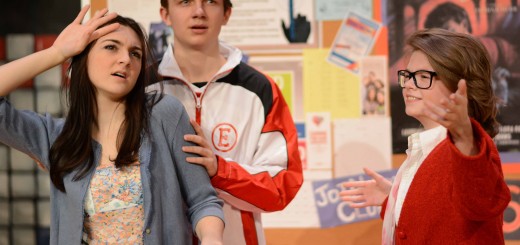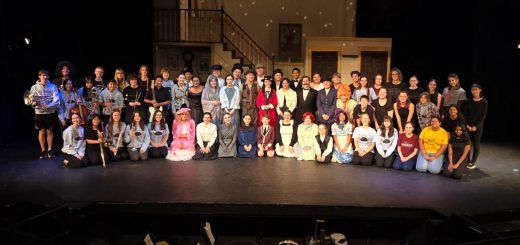The musical that defies gravity: Wicked’s use of tropes as tools
 Jessica Pfeifer | Conant Crier
Jessica Pfeifer | Conant Crier Wicked is easily the most spellbinding production I have ever seen performed on a stage. The musical is filled to the brim with outstanding characters and plot that make the show into a cohesive story.
Welcome to “Wicked: a musical that defies gravity” where I will dive into this show’s heart and dissect it bit by bit in order to discover what makes this musical so compelling. This is the second installment in this series where we will discuss Wicked’s use of tropes as tools.
Wicked uses tropes to its advantage to create characters with immediately recognizable personalities. Yet, it expands upon these tropes by demonstrating the characters’ unique reactions to every-day situations. This creates much needed depth that trope characters so often lack. This expansion ensures that characters do not become boring cliches or dive into the realm of harmful stereotypes. The leads of the show, Elphaba and Glinda, are prime examples of this healthy use of tropes.
Elphaba begins the story as the everyday nerd. She’s awkward and focused on her studies, standing in a sharp contrast to Glinda, a fashion-obsessed party girl. However, Elphaba goes far beyond the stereotypical nerd. Her intelligence isn’t restricted to her school work, as she often applies it to real life situations. She stands up for the rights of the minority population, anthropomorphic animals, who are being ostracized in society by the majority population, humans.
Elphaba fought for what she believed in, even when that meant losing everything and everyone she loved, making her a symbol of what someone fighting for change must endure. She is a representation of the fact that the world often isn’t kind to people who try to go against the grain. Elphaba continues to fight in spite of this. She understands that creating change requires hard work and sacrifice. She is well aware that the people of Munchkin Land and Oz may turn against her for standing up for the animals, but she does it anyway because she believes it is right.
Glinda, on the other hand, is a clear example of the “blonde” stereotype. This is made fun of in the musical when Elphaba and Glinda are trying to describe each other in the song ”What is This Feeling?” While Glinda lists off several character traits, all Elphaba has to say is a single word: “blonde.”
However, Glinda is much more than her uptight, fashion-forward nature. She is dedicated and cares deeply for others, even if she tends to put herself first. Additionally, Glinda is willing to do anything for love and adoration. After all, that’s what the blonde, popular girl stereotype thrives off of. However, the show adds onto this by showing how this trait could develop in a post-school environment, where Glinda is put in a position of fame and power. Glinda’s need for public admiration winds up standing in the way of her making the right decision.
Glinda and Elphaba also learn and grow from one another, which is rarely heard of in such contrasting characters. Their differences are made to be their strengths, and their similarities help bring them together. Most of this would not have been able to be as effectively accomplished if it weren’t for the use of tropes.
Wicked illustrates that tropes, despite their simplicity and potential harmful effects, can be used to further a character’s development by flipping the trope on its head or expanding upon it. This is just one of the many things that helps to make the world of Wicked and the story within it so powerful.
The next installment of “Wicked: a musical that defies gravity” comes next week. This article will cover Wicked’s positive portrayal of powerful women.




Recent Comments